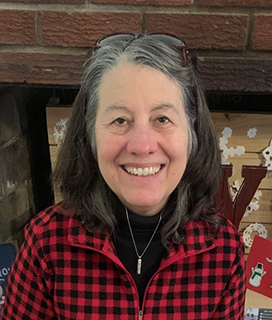-
Idols Come in All Shapes and Sizes; Commandments 2 & 3
 Written by Deanna Brooks, volunteer with Iron Rose Sister Ministries in Arkansas
Written by Deanna Brooks, volunteer with Iron Rose Sister Ministries in ArkansasAfter the Israelites left Egypt, God told them:
You shall have no other gods before me. You shall not make for yourself a carved image, or any likeness of anything that is in heaven above, or that is in the earth beneath, or that is in the water under the earth. You shall not bow down to them or serve them, for I the LORD your God am a jealous God. (Ex 20:3-5a ESV)
We don’t know when man first turned to idols, but Joshua tells us, “Long ago, your fathers lived beyond the Euphrates, Terah, the father of Abraham and of Nahor; and they served other gods” (Jos 24:2b).
Later, when Jacob took his family back to his homeland, Laban came after them, accusing them of stealing his gods (Ge 31). In Genesis 35, Jacob tells his household to put away all their foreign gods and purify themselves, Then, they go to Bethel to build an altar to the LORD, whom Jacob affirmed had been with him wherever he had gone.
In Egypt, the Israelites were exposed to the gods of the Egyptians, so when God led His people out of slavery, He wanted them to understand there is one God.
The Israelites were constantly tempted to worship the gods of surrounding peoples. It was not until the Babylonian captivity that the Israelites became mono-theistic. That captivity cured them of worshipping idols.
What do we think of when we hear the word “idol”? A simple definition is anything or anyone that we love and desire more than God, our Heavenly Father, our Creator.
Jesus addressed this desire when He said: “Blessed are those who hunger and thirst for righteousness, for they shall be satisfied” (Mt 5:6).
Most of us know what it is to be hungry and thirsty. Jesus wants us to have that same longing for righteousness.
So, what becomes an idol in our lives? Bowing down to a golden calf is not something most of us do, but is it possible we have other things that take the place of God?
It is sometimes said that there is a “God-shaped hole” in our hearts, and we seek to fill that hole. Satan tempts us to fill that hole with something other than God. People attempt to fill that hole with family, job, money, possessions, and many other things, but only God can give the peace and fulfillment that fills the heart.
When Jesus was talking to His disciples in the upper room, He told them, “Peace I leave with you; my peace I give to you. Not as the world gives do I give to you. Let not your hearts be troubled, neither let them be afraid” (Jn 14:27).
A few minutes later He prayed, “I do not ask that you take them out of the world, but that you keep them from the evil one” (Jn 17:15).
We live in the world, and many things attempt to take our focus off of Jesus, of doing His will, of making Him LORD of our life.
When we hunger and thirst after righteousness, striving to do God’s will, the peace Jesus left will fill our hearts.
In 1772, William Cowper penned the words to “O for a Closer Walk with God.” One of the stanzas reads:
The dearest idol I have known,
Whate’er that idol be
Help me to tear it from Thy throne,
And worship only Thee.We turn our hearts toward God, seeking His righteousness to fill our hearts. Second Chronicles 12:14 says of Rehoboam, “He did not set his heart to seek the Lord.”
The question we need to answer is, “Do I value anything more than my relationship with my Heavenly Father and my Redeemer?” If we answer “yes,“ what changes do we need to make so we hunger and thirst for righteousness?
-
If God Is Our Priority, He Supplies What We Need
 Written by Liliana Henríquez, volunteer with Iron Rose Sister Ministries in Colombia
Written by Liliana Henríquez, volunteer with Iron Rose Sister Ministries in ColombiaIn the previous blog post, I told you that sometimes there are situations or people that we turn into idols that end up occupying God's place in our hearts, our minds, and even our agenda. That's a serious mistake! As Christians, our priority should be God and following Him, not other things.
I am very fond of remembering the promise in Matthew 6:33, "But seek first his kingdom and his righteousness, and all these things will be given to you as well" (NIV). God promises us that if we seek Him, He is faithful to give us what we need. The challenge is to understand that the peace and joy that God offers us is far greater than that offered by the world. It is also important to remind ourselves that we need God's support to be able to cope with life's challenges—not something we can do with our own strength.
A job, a husband, children... they will never be able to fill the space that only God can fill.
In June 2023, I received an invitation to support a mission project in another country for a couple of weeks. That really got me excited! However, there was a "small" problem... my passport was expired. What a great frustration! However, I remember that Matthew 6:31-33 came to my mind and gave me strength. I like how it appears in the Easy-to-Read Version:
Don’t worry and say, ‘What will we eat?’ or ‘What will we drink?’ or ‘What will we wear?’ That’s what those people who don’t know God are always thinking about. Don’t worry, because your Father in heaven knows that you need all these things. What you should want most is God’s kingdom and doing what he wants you to do. Then he will give you all these other things you need. (ERV, emphasis added)
A relevant fact that I must share is that I am Venezuelan and I live in Colombia. At that time, there was no Venezuelan consulate in all of Colombia, so the only way to get the passport was to go to Venezuela, stay for a month or two there until my passport was ready, and come back. And that definitely wasn't an option for me.
So I, in my conversations with God, asked Him: How am I going to get my passport if there hasn't been a consulate in Colombia for five years?
I answered myself, based on verse 32: Liliana, only those who do not know God try to achieve these things by their own means. Take it easy.
That same month, the first Venezuelan consulate in Colombia opened its doors (Miracle 1). It was located in the city of Cúcuta, which is 16 hours by bus from Bogotá (where I live). I got my appointment very quickly and without difficulty (Miracle 2). I went in August and the whole process was successful. Now all that was left was to hand over the passport. Since the consulate had just started operations, they had not enabled the option of sending the new passport to other cities. So as soon as I was notified that the passport was already printed, I traveled to Cúcuta again to pick it up. In October, I returned home happy with my new passport, ready to be used (Miracle 3).
On that occasion, I confirmed once again that when we obey God, He takes care of providing and opening doors that may have been closed for years. All He asks of us is that we truly commit to Him and make Him our priority.
-
If They Divide Us, They Will Conquer Us – Don't Let the Challenges of Relationships Cost Us the Victory
Written by Nilaurys Garcia, volunteer with Iron Rose Sister Ministries in Canada

What a joy it is when you get along with all of the people in your circle, or those with whom you associate. There is a sense of peace in those moments and it can be even a little scary because you wonder when something might go wrong in one of those relationships. If I tell you that having differences of opinion is normal and that you can't get along with everyone all of the time, chances are, you'd agree with me. It's easy to have a good relationship with someone with whom you always get along and who thinks like you. It requires more effort when there have been exchanges of not-so-friendly words or when the other person has hurt your feelings.
You may have heard the phrase, “divide and conquer.” It is a well-known strategy in games, in wars, and in situations where the enemy must be separated so their strength will be weakened, most of the time because they will not have the support of a team. Sometimes I have used this strategy to complete a project by having the team split up the tasks and thereby conquering the goal.
Taking it to a more personal and relational level, I have tried to divide or separate people from the way they behaved in the past. I remember who they are and how they responded, and that helps me have a clearer and more objective approach as I deal with the current situation. While a negative impression based on past events will certainly impact our response, it should not determine the way we deal with a current situation. When we separate the bad from the good, we will get better results. A relationship can change a lot when the context is changed, meaning the place, the other participants, and even the topics of conversation.
I like to think about the opposite of “divide and conquer,” the sum of everyone’s efforts can outweigh each individual’s work. It sounds a bit complicated, but there´s a reason why the opposite works very well against enemies. Returning to the strategy where activities are separated to achieve a common goal, much more can be achieved when we collaborate for the fulfillment of an objective since there is support and complement. A biblical example is that a rope made of three strands is more difficult to break. "
Though one may be overpowered, two can defend themselves. A cord of three strands is not quickly broken!" (Eccl. 4:12 NIV)
The relationship we have with Christ is easier if we do it in community, instead of trying to do it on our own. On more than one occasion I have needed help from my family in Christ to face a situation, reaffirm my faith, and get much closer to our Creator. When thinking about how to counteract the effects of division, a story that comes to mind is found in Exodus 17:8-13, when Joshua leads the people in battle against the Amalekites.
Moses supported the Israelite army from the top of a nearby hill by holding up the rod of God. If Moses lowered his arms, the enemy would overpower Joshua’s army. To achieve victory, Aaron and Hur supported Moses, holding up both of his arms until sunset. Isn't this story wonderful? I get excited knowing that the united support of a few and the efforts of many gave the victory to Israel. I wonder what would have happened if Aaron had been angry with Moses over some argument between brothers and refused to help him. It would be a very different ending.
Although I have had moments when I have wanted to surrender, I have had the support of the people with whom I have relationships to encourage me to move forward. I see this in the effort of my brethren in preventing the enemy from dividing and conquering me in my Christian walk. When we have differences with others, we cannot let disagreement become a barrier in our relationships, destroy unity, or let one of our brothers or sisters fall simply because they have a different opinion from ours. And at other times, it might very well be me that is the difficult person to love, and the one who needs my loved ones to see beyond my complicated attitude.
Would you join me in staying united to protect the people of God?
-
In the Dust of the Rabbi...
 Written byMichelle J. Goff, Founder and Executive Director for Iron Rose Sister Ministries in Arkansas
Written byMichelle J. Goff, Founder and Executive Director for Iron Rose Sister Ministries in ArkansasA first-century Hebrew legend states that a good disciple is covered in the dust of the Rabbi. He follows his teacher’s steps so closely that he cannot escape the dust kicked up by his sandals.
A wise woman who practices closely following the steps of Jesus (1Pe 2:21) will be covered in the dust of the Rabbi. What will she look like?
- She will love God and seek Him first (Mt 6:33, 22:37).
- She will be known for Christ’s love in her (Jn 13:35).
- She will talk with God at all hours (Lk 6:12).
- She will openly express her feelings to God through prayer (Mt 26:42).
- She will ask for the support of others (Mt 26:37-38).
- She will serve others (Mt 20:28).
- She will be holy: set apart for a purpose (2Pe 1:16).
This is not an exhaustive list. What other characteristics come to mind that a follower of Christ would “pick up” in the dust of the Rabbi?
The more we walk with Him and talk with Him, the more like Christ we will become. Acts 4:13 is one of my favorite verses because it was obvious to others that two simple, ordinary men had been with Jesus.
When they saw the courage of Peter and John and realized that they were unschooled, ordinary men, they were astonished and they took note that these men had been with Jesus.(NIV)
Can you recall a moment in which it was obvious to others that you had been spending time with Jesus?
At the end of a women’s retreat, after a time of worship on Sunday morning, after a Bible class digging deep into the Word, after an intensive time in prayer… any time we can spend in relationship with our Teacher will become the overflow from which we live, act, and speak. Jesus spoke with His Father frequently so that His words would always be an accurate representation of His Father (Jn 12:49).
One Wednesday night, my mom was on the phone with a friend who commented on how exhausted my mom sounded, recognizing how discouraged she was about a situation. “I am tired,” mom admitted, “but I need to go on into the church building. Thanks for your prayers.”
Mom called the friend back after the evening services, and her friend observed, “Wow! You sound like a different person. Are you still tired? I can tell you were truly uplifted by the time with other Christians.”
When we walk in the dust of the Rabbi, we also have the blessing of spending time with others who are “dusty.” None of us walk the Christian walk perfectly. We are practicing. When one falls, another is there to pick us up (Ecc 4:10). And the closer we each follow in the Rabbi’s steps, the deeper we grow in relationship with one another. A wise woman who practices following closely in the steps of the Rabbi will walk with other disciples who are following Jesus.
Connecting to God and one another more deeply, equipping other women to do so… sounds like a great idea for a women’s ministry!
How do you want to grow closer to Jesus, walking in the dust of the Rabbi?
What is a thorn hindering you from following in His steps?
How can you have another Iron Rose Sister encourage or accompany you to “get dusty”? Thank each other for the opportunity to serve as iron sharpening iron as we practice following in the steps of the Rabbi.
-
Intentional Teaching Through Relationships
 Written by Karyn Dancy, volunteer with Iron Rose Sister Ministries in Arkansas
Written by Karyn Dancy, volunteer with Iron Rose Sister Ministries in ArkansasThere are many different styles of teaching. What I’ve found most effective, though, is intentional teaching through relationships. Paul gives us examples of this, especially in his relationship with Timothy.
I used to be a classroom teacher at the elementary level. I worked in two low-performing schools and I was told from the beginning by other teachers that these children were worthless. It was appalling to me that anyone would say such a thing. As a new teacher, I went in, excited to share some of the resources I’d learned about in school with the other teachers, and the response was actually that these children weren’t worth the effort. This started my determination to show those children and their families that they were very valuable and capable. I wanted them to know they weren’t limited by the expectations of others, not even teachers.
I set out to show the students and their families that they were important to me by building relationships with them. I learned about their cultures and invited them to share things in the classroom that were important to them. Many of them came from immigrant families, so we had a great opportunity to share the diversity of their cultures in the classroom.
Each month we featured a language of the month. The quiet signal for that month would be counting to five in that language and I would teach the kids common words. They would earn points for good behavior, and then at the end of the month, we would have a cultural celebration. (We weren’t allowed to have “parties.”) I invited parents to share about their cultures and bring food for the kids to sample. One particular family was a great example of how that relationship benefited their student. Our language of the month was Samoan. When I asked the student’s mother to help me with the basics of the language, she not only did so but also became active in the classroom in many other ways. Previously her son had not been the best student, but once his mom took an interest in the class, so did he. It was like they were invested in the learning process once they felt valued. It turned out that the student’s grandfather was a tribal chief back in Samoa and had made a video of how to harvest coconut. The student’s mom brought the video in to share with the whole class.The way it all worked out, once I’d built a foundation of relationship with these children and their families, they came alongside me and cared about what I had to share with them. I was able to teach more effectively because they trusted me. When there was any particular difficulty, for example, math with fractions, we’d explore different activities that would help them until we found what worked best for them.
These students were sixth graders at the time. It’s been about 18 years now, and I still keep in touch with some of those families. It was a very rewarding experience.
Similarly, Paul built a relationship with Timothy. Then Paul mentored and equipped Timothy to follow him as he followed Christ, and Timothy was then able to do the same with his students. Paul didn’t only want his students to learn information; he wanted them to act on that knowledge. Paul said in 1 Corinthians 9:19 that he became like the people he was teaching so that those people could relate to him and believe. Paul shows us through his example how a teacher positively reinforces through encouragement, modeling, and monitoring. The relationship didn’t end when he handed things over to a student to become a teacher. He followed up because it was a true relationship, not simply a means to an end.
Since you’re reading this, I know you care about relationships with your sisters in Christ. Keep building and nurturing those. Let’s follow Paul’s example. We can be the students. We can find mentors to trust and build relationships with. Then we can pass on what we’ve learned to others, with our own added flavor, and keep the process going to win as many as possible and build each other up.
#IronRoseSister #teachthroughrelationships #learnthroughrelationships #intentionalteaching #valueothers #trust #mentoring #teachbyexample #intentionalteaching #blog #guestwriter
-
Intentional Thankfulness - A Path to Rejoicing
 Written by Marbella Parra, volunteer with Iron Rose Sister Ministries in Honduras
Written by Marbella Parra, volunteer with Iron Rose Sister Ministries in HondurasGratitude is a powerful virtue that often goes unnoticed in the midst of our busy lives. However, gratitude not only transforms our perspective, but it also invites us to experience deep joy, just as the apostle Paul teaches.
Rejoice in the Lord always. I will say it again: Rejoice! (Php 4:4 NIV)
Paul does not call us to rejoice when all is going well or only on happy days. He invites us to rejoice always, a term that includes both times of joy and sorrow. This attitude of gratitude is an intentional decision that uplifts the soul and opens the door to authentic joy. It is here that thankfulness becomes a powerful tool to connect with the peace and joy that only God can give.
I must admit that, in my life today, gratitude is not something that flows naturally. I'm at a point where daily responsibilities and challenges have led me to feel overwhelmed. There are days when, even though I know God is present, it seems hard to see the reasons to rejoice. I find myself constantly struggling with frustration and burnout, and Philippians 4:4 feels like a challenge that I still can't fully meet.
However, I'm in the process of working on it. Recently, I decided to start practicing intentional thankfulness. I started a gratitude journal, although I have to admit that it has been harder than I thought. There are days when I feel too tired or worried to see anything positive. However, I am committed to trying every day. Sometimes, the list is limited to very simple things: a moment of silence, a ray of sunshine in the morning, or a message from a loved one. I don't always manage to write down three things, but even with just one small thing, I try to remember that this is part of my effort to live the call to always rejoice.
This exercise has shown me that thankfulness is not something I necessarily feel right away; it's rather a practice I'm trying to cultivate. Although I have not attained that full, constant joy that Paul describes, I have noticed small glimpses of change in my attitude. I realize that when I make an effort to be grateful, no matter how small the reason, my day takes on a slightly different tone. It's not that my problems go away, but I feel a small spark of peace that gives me the strength to keep going.
This stage of my life has taught me that gratitude does not always arise spontaneously; Sometimes, it is a conscious decision. Choosing to be thankful in difficult times does not mean ignoring problems but recognizing that, even in the midst of adversity, I can find reasons to rejoice. When I focus on what God has done and continues to do, even if it is still a challenge, I discover that thankfulness can be the channel that will lead me to a fuller, more joyful life.
Paul understood this very well. Despite writing from prison, he was filled with gratitude and joy. He knew the transformative power of thankfulness and how it could bring people closer to deep peace in the Lord. By applying this teaching in our everyday lives, the act of giving thanks not only changes our perspective but also strengthens our faith.
How Can We Practice Daily Gratitude?
1. Make a daily gratitude list: Take five minutes a day to write down three things you're thankful for. These can be as simple as a delicious meal, an uplifting conversation, or the warmth of the sun on your skin.
2. Express your gratitude to the people around you: A sincere "thank you" can strengthen relationships and create an environment of love and respect.
3. Pray with thankfulness: In your prayers, take time to thank God for His goodness and faithfulness. Make gratitude a central part of your spiritual life.Gratitude is a habit that is built. In doing so, I discover that my life can be filled with joy and rejoicing, not because everything is perfect, but because I am learning to see God's hand in every detail, no matter how insignificant it may seem.
What are the little things you can be thankful for today? How can you make thankfulness a daily practice that brings you closer to God and helps you experience true joy?
-
Intentionality in Relationships
Written by Kara Benson, volunteer with Iron Rose Sister Ministries in Arkansas

“And this is my prayer: that your love may abound more and more in knowledge and depth of insight” (Phil. 1:9).
Paul prays that the Christians in Philippi may have a love that is growing in knowledge and increasing in insight. That requires intentionality. It is an investment of time and energy. It takes effort to really get to know someone, and it takes intentionality to act on that knowledge. Intentionality is desire coupled with action, and it generates meaningful relationships.
We are not going to build relationships with our brothers and sisters in Christ solely by showing up for service on Sundays and slipping out the side door after the last song. This is a truth I have learned from personal experience. Deep relationships do not occur by happenstance; we cannot expect to somehow “fall into” strong relationships. Rather we must make the conscious decision to pursue and build strong relationships.
According to the command given in Titus 2:4-5, older Christian women should
“train the younger women to love their husbands and children, to be self-controlled and pure, to be busy at home, to be kind, and to be subject to their husbands, so that no one will malign the word of God” (Titus 2:4-5).
Having been married less than five years, I have a lot to learn. This past spring, a sister intentionally initiated a weekly study with me. In this mentoring relationship, she is teaching me and I am learning from her about how to be a better wife. Even though she is getting older, she is very active in the kingdom. She is connected to the true vine and bearing much fruit (John 15).
On two different occasions when my husband was traveling for work, a sister in our congregation invited me over for dinner with her family. Although she is investing in the lives of her three young children, she is also intentional in getting to know me well enough to know what is going on in my life. She knows how to reach out to others and is deliberate in doing so. Hebrews 10:24 says, “
Let us consider how we may spur one another on toward love and good deeds.”
We are called to devote mental effort in contemplating how we may best encourage our brothers and sisters in Christ. It requires being intentional and involved in one another’s lives outside of the church building.
Another element of intentional relationships is being mindful of others in different seasons of life. I greatly appreciate Michelle’s most recent book, One Single Reason, because it deepens the discussion about singleness and supports sisters in Christ seeking to better understand each other. “Deep love for my single sisters” and “the same deep love for my married friends who long to know how to better support their single sisters” are the first two motivations united by the one single reason for the journey: love. “Even through misunderstandings and the lack of awareness on all sides,” Michelle writes, “one of the most beautiful outcomes has been the love expressed” (pg. 12). Do you hear that? This is a love that desires depth of relationship, motivates us to learn and grow, and seeks to better connect with our sisters in Christ, all while graciously covering over our mistakes and missteps along the way (1 Pet. 4:8).
Second Peter 1:5-8 urges us to add the attributes of knowledge, kindness, and love (among others) to our faith:
“For this very reason, make every effort to add to your faith goodness; and to goodness, knowledge; and to knowledge, self-control; and to self-control, perseverance; and to perseverance, godliness; and to godliness, brotherly kindness; and to brotherly kindness, love. For if you possess these qualities in increasing measure, they will keep you from being ineffective and unproductive in your knowledge of our Lord Jesus Christ.”
Not only will continually growing in these characteristics prevent us from being unfruitful in Christ, it will also strengthen and deepen our relationships with one another.
I would like to conclude by extending our discussion of intentionality to those around us who are lost. In John 4:35, Jesus declares,
“Open your eyes and look at the fields! They are ripe for harvest.”
Are our eyes open to the harvest every day at our workplace? Do we see the harvest in our neighborhood, across the street? What about the harvest in the pew to our left? Hebrews 9:27 warns, “man is destined to die once, and after that to face judgment.” Let us tell everyone we can about the gospel in the hopes that, when they are standing before the judgment seat on judgment day, they know and are known by the Judge.
God is intentional in His relationship with us. Likewise, we should be intentional in our relationships with others. How are you being intentional in your relationships with your family in Christ? Are you putting yourself in situations where you can connect with people who need the gospel?
-
Intercessory Prayer - The Ultimate Love Language
Written by Katie Forbess, President of Iron Rose Sister Ministries Board of Directors in Arkansas

Many people have taken personality tests that identify their “love language." The five major languages are physical touch, gift giving, quality time, words of affirmation, and acts of service. There are many online resources for people who want to learn more about themselves and how they show love to those around them, whether it is their spouse, their parents, or even strangers they meet from day to day. This is an interesting and helpful way to explore your relationships and how to improve them, while still getting your own needs met. What is cool about intercessory prayer is that it incorporates all of the love languages in the most universal love language of all: Prayer!It’s praying for others and letting God take care of them in ways that you can’t because you are human.
Once you realize that you can let God handle things not only in your own life but in your relationships as well, intercessory prayer can be an empathetic response to other people’s trials as well as celebrations. One of the main purposes of identifying your love language is to create harmony and unity in your relationships. This is also the purpose of intercessory prayer. Unity was one of Christ’s main purposes in coming to earth: living and dying and resurrecting so that God the Father, the Son, the Holy Spirit, and those who are in Christ can be one. The key to that unity is love. Love is the glue that holds the intercessory prayer together, as shown in Jesus’ prayer in John 17:23 NIV. “I in them and you in me—so that they may be brought to complete unity. Then the world will know that you sent me and have loved them even as you have loved me.”
And He continues to pray for this unifying love in verse 26, “I have made you known to them, and will continue to make you known in order that the love you have for me may be in them and that I myself may be in them.”
It is also a way of protecting people, and there are many examples of this in the Bible. In this context, we see how Jesus is praying to protect, praying first for Himself and then His disciples. Then He prays for those in the future who will believe. This is because He is the Bridge and the High Priest between His disciples and God. Therefore, intercessory prayer is a way to unify and protect your loved ones.
An important aspect is that when you pray this way—on behalf of others—you are glorifying Jesus and the Holy Father. This purpose is outlined in verses 1b-3 of John 17.
Father, the hour has come. Glorify your Son, that your Son may glorify you. For you granted him authority over all people that he might give eternal life to all those you have given him. Now this is eternal life: that they know you, the only true God, and Jesus Christ, whom you have sent.
Intercessory prayer is a way to connect with someone and show them that although you can’t take care of things for them, you know Who can. When you place your hands on someone or hold hands with them to pray, that is physical touch. When you give them the time that it takes for you to pray for them, you not only spend quality time with them but also with God. Jesus knew it was very important to spend time in prayer, especially when He was in His worst situations. He also took the time to explain to His disciples what was going to happen, even if they didn’t yet realize the weight of it. Intercessory prayer is a blessing, which is a form of gift giving. And this kind of prayer is an act of service and definitely words of affirmation because you are looking to the One who will tell you only truths when there are so many lies that others would like you and those close to you to believe.
All in all, when you have a relationship with another, intercessory prayer is a vital and beneficial part of that relationship that will help you grow closer to each other and to God.
How can you focus more on glory, protection and unity in your intercessory prayers?
-
Intergenerational Relationships
Written by Katie Forbess, Board President

There is something extremely special about when women get together to focus on learning and celebrating Christ that allows for intergenerational diversity in a natural way. One of the most beautiful things about an Iron Rose Sister Ministries event is the multigenerational representation. This aspect of the events is also international.
A recent bilingual event was hosted by the Memorial Church of Christ in Houston, Texas, where I grew up going to church and only a block from where I grew up going to high school. I was unable to attend that event in-person, but loved hearing the God stories about the intergenerational and international diversity, as pictured (photo cred: @findyournitsch). Everyone celebrated with everyone else and learned from each other.
Relationships throughout the Bible show mentorships and intergenerational learning. David and Saul started as David soothed Saul by playing his harp and observing his role as king. It then moved into a dangerous game of hide and seek. David taught King Saul, as well as others, when he faced the giant and convinced his best friend that his father was going to try to kill David. Along the way, David learned the importance of keeping God’s Spirit and prayed after his own sin that it not be removed as it was from Saul. Nathan led David though that terrible time of repentance and restoration. David learned and taught through relationships.
Jesus brought multitudes together that were diverse in ages, like when the small boy brought his five loaves and two fishes from amongst 5,000 men. When the children approached Him at other times, the disciples were not as accepting, but Christ used it as a teaching moment to emphasize the importance of the younger generation. Jesus also honored the widow who had lost her son. From the old to the young, Jesus taught through all ages of relationship.
The early church needed a reminder to take care of the older generation. They elected seven men to help make sure this would happen evenly across both the Hebraic and Hellenistic Jews (Acts 6). James continues this emphasis in his book, including the multigenerational admonition to take care of widows and orphans (1:27). I don’t think that was solely for the widows’ and orphans’ benefit. Everyone learned as those two groups were being served.
I can testify to the blessing of learning from those we think that we have been called to serve or teach—most recently from a new neighbor. I can truly say every time I have been close to her I have learned more about her love for the Lord, her faithfulness and gracefulness, her honesty and transparency. We have a lot in common even though she is older than I am by at least 20 years. We both love dogs and bugs and our families and laughing.
I remember my first conversation with her was mainly about our dogs. The second one was about house robes and how we like to wear our husbands’ but for some reason the sleeves were so wide that water from the sink always ran down them. The third time, I learned she was a member of the Church of Christ and met one of her best friends who had come to visit from California.
About two weeks prior, she had lost her husband and her dog during the same week, but I didn't know that she had lost her dog before I went. I went over with a plan to talk to her because I wasn’t able to go to the funeral. I took a puppy I have been taking care of for “puppy therapy.”
I learned that she misses her husband and her dog terribly. She loved on the puppy and asked about my family. She was so happy that a neighbor was going with her to church on Sunday after listening to the preacher at the funeral, and I told her that her husband, who was an evangelist, received the best gift at his funeral! He was smiling in heaven! As we spoke, she taught me by sharing her stories of grief highlighted by the faithfulness of God.
At church gatherings, throughout the Bible, and with a neighbor, we can see the impact of teaching and learning through intergenerational relationships. Who can you reach out to today? Someone younger? Someone older? Share your stories with us!

-
Intergenerational Relationships Give Us Wisdom
Written by Liliana Henríquez, volunteer with Iron Rose Sister Ministries in Colombia

There is a well-known saying, "Time is money." I believe this means that all the years of life granted by God are very valuable, both for ourselves and for others. Time is not necessarily synonymous with wisdom, but it does equate to experience.
Wisdom is God's gift, and when we are lacking it, we can ask for it and He guarantees that He will give it to us abundantly (James 1:5). Experience brings with it the knowledge and skills we acquire over time. Both are important, necessary, and valuable during our time on earth.
In our daily lives, we come across many challenges and situations that other people have already experienced such as divorce, marriage, raising children, traveling, changes in our work life, and others. And thanks to what we call intergenerational relationships— friendships among people of different ages—we can find better and faster solutions to our problems, always remembering that "wisdom is found in those who take advice" (Prov. 13:10b NIV).
Ruth and Naomi's relationship is an excellent example of a wonderful intergenerational relationship.
Ruth was in the same situation as Naomi—they were both widows. However, Naomi had a plan: return to her homeland, Bethlehem. This was a new place for Ruth, but she agreed to be led by her older and wiser mother-in-law.
Now Naomi had a relative on her husband’s side, a man of standing from the clan of Elimelek, whose name was Boaz. And Ruth the Moabite said to Naomi, “Let me go to the fields and pick up the leftover grain behind anyone in whose eyes I find favor.” Naomi said to her, “Go ahead, my daughter.” (Ruth 2:1-2)
Ruth was a hard-working woman who listened to the advice of her mother-in-law, Naomi, and sought her constant guidance, and the good relationship that she had with Naomi was admirable, so much so that it was publicly recognized.
Boaz replied, “I’ve been told all about what you have done for your mother-in-law since the death of your husband—how you left your father and mother and your homeland and came to live with a people you did not know before. (Ruth 2:11)
Naomi's wisdom and experience guided Ruth to directly seek out a man to redeem her. Following this advice shortened the time to improve her situation and lessened the possibility of making mistakes. Those same benefits can be obtained by all of us today if we develop relationships with older and wiser women.
There are many teachers of good things (Titus 2:3), willing to guide younger ones to avoid stumbling blocks. But to experience this benefit, we need to open ourselves to opportunities for cultivating intergenerational relationships that will allow us to grow personally and spiritually. The benefit is mutual: older women bring wisdom and experience to the younger ones, and younger ones help the older ones actively fulfill their God-given calling to teach others.
“Therefore everyone who hears these words of mine and puts them into practice is like a wise man who built his house on the rock” (Matt. 7:24). Through developing intergenerational relationships, let us be women who build their house, their mind, and their heart on the rock and not on the sand.
-
Is God Your Priority?
 Written by Liliana Henriquez, volunteer with Iron Rose Sister Ministries in Colombia
Written by Liliana Henriquez, volunteer with Iron Rose Sister Ministries in ColombiaI'm one of those people who, when they like a song, listen to it a thousand times throughout the day (or several days) until it doesn't excite them anymore. I can literally search on YouTube: "An hour of... (title of the song)" and play it all day long. It becomes the first and only song I listen to for a long time. It becomes the soundtrack or the main song of my day (or days) and I enjoy it very much.
This reminds me of when we decide to obey the gospel and get baptized. Converting ourselves to Christ and everything that has to do with the church is our priority. We are excited to learn the lyrics to all the hymns we sing at service, attend all church activities, read the whole Bible, and know all the verses. We are passionate about Jesus!
How wonderful it would be if we maintained that same passion for the rest of our lives as Christians!
As expected, life goes on, and with it comes new decisions, challenges, and stages such as marriage, children, new jobs, university studies, travel, migration... and generally, these tend to diminish the passion for Jesus that we felt at the beginning. I don't mean that we stop loving Jesus or being His disciples; I mean that the cares of life are sometimes so heavy and challenging that they distract us from what is important, to such an extent that we could make the grave mistake of giving them the first place that only God deserves.
You shall not make for yourself an image in the form of anything in heaven above or on the earth beneath or in the waters below. You shall not bow down to them or worship them; for I, the Lord your God, am a jealous God, punishing the children for the sin of the parents to the third and fourth generation of those who hate me. (Ex 20:4-5 NIV, emphasis added)
As I read this passage, I am struck by these three words:
"MAKE": It leads me to understand that anything taking the place of God is an idol that we ourselves have the power to create.
"BOW DOWN": Everything we idolize causes us to take on an attitude of submission. Therefore, we yield our will to that idol.
"WORSHIP": We respect and give a place of preeminence to what we put first.
It's important to remember that we have a jealous God and we need to be very aware of that. He wants us to seek Him, to choose Him, to worship Him above anything else created in the world. Our life is hidden with Christ in God (Col 3:3) and we are to honor only Him.
I invite you to ask yourself: Is God the theme song of my life today?
I hope so. He is our King.
-
Jesus and His relationship with the 12
 Written by Deanna Brooks, volunteer with Iron Rose Sister Ministries in Arkansas
Written by Deanna Brooks, volunteer with Iron Rose Sister Ministries in Arkansas“Come, follow Me.” What would you do if someone approached you and told you to drop everything and come?
The 12 Apostles did that. They probably had no idea what a life-changing experience that would be.
Luke 6:12-17 gives a brief account of what happened:
“In these days he went out to the mountain to pray, and all night he continued in prayer to God. And when day came, he called his disciples and chose from them twelve, whom he named apostles: Simon, whom he named Peter, and Andrew his brother, and James and John, and Philip, and Bartholomew, and Matthew, and Thomas, and James the son of Alphaeus, and Simon who was called the Zealot, and Judas the son of James, and Judas Iscariot, who became a traitor.”
From this passage we learn:
- Jesus prayed all night to His Father before choosing His apostles.
- Jesus already had a following… He called the disciples to Him and chose 12 from the group.
Look at these 12 men:
Peter- a fisherman.
Andrew- Peter’s brother. It was Andrew who first told Peter about Jesus.
James- also a fisherman and cousin to Peter and Andrew.
John- brother to James and a fisherman.
Those four men had been part of a family fishing business that included their fathers who were Zebedee and Jonah (or sometimes referred to as John.) They were living in Capernaum when they met Jesus.
Philip- His hometown was Bethsaida, which was also the home of Peter and Andrew. In John 12:21-22 we learn that some Greeks who had gone to the feast in Jerusalem approached Philip asking to see Jesus.
Bartholomew- In John 1:43-51 he is called Nathaniel, and it is Philip who tells him they had found Him of whom the prophets wrote. Nathaniel’s response was, “Can any good thing come out of Nazareth?”
Matthew- He also went by the name Levi and was contracted by the Roman Empire to collect taxes from the Jews in Capernaum. Tax collectors were known for lying about how much people owed and pocketing the difference.
Thomas- He is often referred to as “Doubting Thomas,” because when the other 10 saw Jesus after the resurrection, his response was: “Unless I see the nail marks in his hands and put my finger where the nails were, and put my hand into his side, I will not believe” (John 20:25).
Jesus then appeared and offered to let him do just that.
Upon seeing Jesus in the flesh with his own eyes and possibly touching the wounds, Thomas proclaimed, “My Lord and my God!” (John 20:28). Jesus responded with one of the most powerful statements about faith in all of Scripture: “Because you have seen me, you have believed; blessed are those who have not seen and yet have believed” (John 20:29). I think it is important to remember, WE are in the group who have not seen, yet believe.
James the son of Alphaeus.
Simon the Zealot- we know little about him, but the description “Zealot” indicates he may have belonged to a Jewish sect known as the Zealots, who were bent on revolution and looking for a Messiah to violently overthrow Rome.
Judas Iscariot- the only one who was not a Galilean… described as a thief and the one who betrayed Jesus. The word Iscariot is linked to a town south of Jerusalem.
Could Jesus have chosen any group who were more different… in personality, in political beliefs, in integrity and honesty?
As they walked with Jesus, they saw Him perform miracles, talk to people who were outcast, talk with women… Jesus walked a different path from other religious leaders.
During these three plus years, Jesus influenced these men, and 11 of them would remain faithful, even in the face of persecution and death.
Jesus was the AUTHORITY in the group. From the beginning His disciples knew He was the leader. They called Him “Master” according to Luke 8:24, and John 13:13-14 tells us they called Him “Teacher” and “Lord.”
Jesus held them ACCOUNTABLE when they argued… Luke 9:46-48. Jesus called a child to use as an example, to encourage them to have the heart of a child. In Luke 22:24-29, after Jesus had washed their feet and they shared supper together, they still argued over being the greatest. Jesus once again talks about serving, then tells them they will sit at the table with Him in His kingdom, judging the 12 tribes of Israel.
Jesus was APPROACHABLE… Luke 11:1-13. They had heard Jesus pray and asked Him to teach them to pray. These are Jewish men who would have been familiar with the Jewish prayers, but it seems something was different when they heard the prayers of Jesus.
At what we call the “Last Supper,” beginning in John 13, we see Jesus taking the role of a servant as He washes the feet of the apostles. Jesus takes this time to talk with them, to give them hope and comfort, to encourage them to love one another. Then in John 15:14-17, He says:
“You are my friends if you do what I command you. No longer do I call you servants, for the servant does not know what his master is doing; but I have called you friends, for all that I have heard from my Father I have made known to you. You did not choose me, but I chose you and appointed you that you should go and bear fruit and that your fruit should abide, so that whatever you ask the Father in my name, he may give it to you. These things I command you, so that you will love one another.”
Hours before His arrest and crucifixion, Jesus calls His apostles “friends.” We expect loyalty and commitment from friends, but this was still lacking among this group of men until after the resurrection. The years together had set the foundation for a friendship where eventually loyalty, trust, and commitment bonded them to the promised Messiah, and they were eager to take His message of redemption to the world.
[ All Scriptures are ESV. ]
-
Jesus and His Relationship with the Teachers of the Law
ritten by Sabrina Campos, volunteer with Iron Rose Sister Ministries in Memphis, TN

We’ve read and studied many stories in the Bible about Jesus’ relationship with the teachers of the law. We insert ourselves in the story, most often identifying ourselves with the Pharisees and Sadducees. And often judging them.
I used to judge them a lot when I was a kid. I could not believe the audacity of some of those teachers. Trying to be tricky, always prideful, and arrogant. At the end of every story, I would think to myself: I bet this person never repented from being this way.
It's interesting how God can use the same story a bunch of different times to teach us different lessons over the course of our lives. One of those stories we read time and time again is found in Luke 10:25-37, The Parable of the Good Samaritan:
On one occasion an expert in the law stood up to test Jesus. “Teacher,” he asked, “what must I do to inherit eternal life?”
“What is written in the Law?” he replied. “How do you read it?”
He answered, “‘Love the Lord your God with all your heart and with all your soul and with all your strength and with all your mind’; and, ‘Love your neighbor as yourself.”
What incredible patience Jesus had!
If I was allowed to answer what I wanted, I probably would have said: “What do you think? Aren’t you the “teacher of the law?” I thought you were supposed to know this already.”
But Jesus not only shows patience, but also love and interest.
In our relationships, we think we have all the answers. And if we ever feel like we are being trapped by a question we either decide to fight or flight. But Jesus, who has all the answers, provides a third option: engage.
He ignites the spark of interest, knowing that the expert in the law would know the answer to this question well. He engages him by making him talk about the subject he loves most in the world: the law!
Jesus sees a human, a flawed, lost soul. He sees past the exterior of a man who might be prideful and arrogant.
And He also affirms:
“You have answered correctly,” Jesus replied. “Do this and you will live.”
And when the teacher of the law doesn’t understand and tries to justify himself, Jesus doesn’t give up. He gives an example, because He knows sometimes, we need visuals.
But he wanted to justify himself, so he asked Jesus, “And who is my neighbor?”
In reply Jesus said: “A man was going down from Jerusalem to Jericho, when he was attacked by robbers. They stripped him of his clothes, beat him and went away, leaving him half dead. A priest happened to be going down the same road, and when he saw the man, he passed by on the other side. So too, a Levite, when he came to the place and saw him, passed by on the other side. But a Samaritan, as he traveled, came where the man was; and when he saw him, he took pity on him. He went to him and bandaged his wounds, pouring on oil and wine. Then he put the man on his own donkey, brought him to an inn and took care of him. The next day he took out two denarii and gave them to the innkeeper. ‘Look after him,’ he said, ‘and when I return, I will reimburse you for any extra expense you may have.’
“Which of these three do you think was a neighbor to the man who fell into the hands of robbers?”
The expert in the law replied, “The one who had mercy on him.”
Jesus told him, “Go and do likewise.”
We’ll never know if the teacher of the law really “went and did likewise.” But we can learn a lot from the way Jesus taught and created an honest relationship with the teacher.
Jesus doesn’t judge the questions; He shows great patience, love, and interest. He sees past the exterior. He engages. He affirms. And ultimately, He understands that sometimes we just don’t understand. And so, He takes us by the hand and shows us examples. Like a big brother showing his younger sibling how to act by being himself a perfect example.
Relationships are hard, because we are always expecting something. We expect others to affirm us and love us, to repent and change. We expect them to be our neighbors.
But Jesus says: “Go and do likewise.” You be the neighbor; the example. You will show patience, love, affirmation, because I did that for you. You will explain things a million times, if necessary, because I do that for you. You will take their hand and walk with them, because I will do that with you ‘til the end of time.
Go and do likewise.
-
Jesus Christ: The Ultimate Example of Humility
 Written by Naijuvelin Díaz Leal, volunteer with Iron Rose Sister Ministries in Venezuela
Written by Naijuvelin Díaz Leal, volunteer with Iron Rose Sister Ministries in VenezuelaHave this mind among yourselves, which is yours in Christ Jesus, who, though he was in the form of God, did not count equality with God a thing to be grasped, but emptied himself, by taking the form of a servant, being born in the likeness of men. And being found in human form, he humbled himself by becoming obedient to the point of death, even death on a cross. Therefore God has highly exalted him and bestowed on him the name that is above every name, so that at the name of Jesus every knee should bow, in heaven and on earth and under the earth, and every tongue confess that Jesus Christ is Lord, to the glory of God the Father. (Php 2:5-11 ESV)
How many times have we heard or read about humility—that character that, although difficult, is not impossible to reach? The apostle Paul invites the Philippians to develop this character by taking Christ as their model. He presents this virtue to us as a reason for obedience and the consequence of exaltation. Humility, then, is an act of obedience. On another occasion, Peter would cry out, "Humble yourselves, therefore, under the mighty hand of God" (1 Pe 5:6a). We see how important it is and the effect that this condition always has on the Christian in any circumstance. Jesus Christ, being the Son of God, did not cling to that status, but lowered Himself, showing His meekness by bearing every scourge, confrontation, disappointment, emotional pressure, and betrayal.
Jesus showed the virtue of humility, full of grace and integrity; He was a model for the disciples and an example for all humanity. He willingly gave up His exalted position as the Son of God to bow down. He made manifest every good work that came from the Father. As His son, He bore suffering to teach us obedience and show us that in all obedience, there is a blessing. Christ is then presented to us as the model of humility in the following ways, while still not relinquishing His status as the Son of God:
- At His coming to earth (2Co 8:9).
- In His humility (Mt 11:29)
- In His submission to God's will (Jn 6:38)
- In His sufferings (Isa 53:1-9)
- At His triumphal entry (Mt 21:5,7)
Every perfect gift comes from above. Developing humility is a blessing, and executing it yields great benefits. When we are humble, we can attain salvation from God (Ps 18:27; 1 Co 1:26,29) and receive His grace (Pr 3:34). God honors the humble (Pr 15:33) and lifts them up (Job 5:11; Mt 23:12; Lk 1:52).
But what is humility? How do I recognize it? Is it a state of mind? A condition? Or a state of material poverty? Humility is acknowledging and exalting God's will over our own in our lives, gifts, virtues, and strength (Jn 5:19). When we constantly seek God and fully trust and accept His plans, that makes us humble and meek before Him. It is an attitude of the heart which goes beyond the external. To submit every thought or desire to Christ—to bring our cares and anxieties captive to Him—is to acknowledge His supremacy by recognizing His power and sovereignty.
Facing situations in which I must bend my will is a great challenge. It is a continuous challenge to know how to accept what God has determined. "My Father, if it be possible, let this cup pass from me; nevertheless, not as I will, but as you will" (Mt 26:39b) is an example Jesus set, reminding me to be humble in many moments of my life, and strengthening me in all areas.
Amid struggles, the apostle Paul continued His service in humility despite the sorrows that beset Him because of the Jews (Ac 20:19). He bore the marks of Christ on his body and bore them with patience and meekness. He exhorts us, too, to put on that garment that identifies us as God's chosen ones (Col 3:12).
Taking up this appeal allows us to live more committed to Christ, worthy of the vocation to which we were called, and the God of peace will guard our hearts in Christ Jesus.
Are you willing to develop this great virtue or spiritual strength?
-
Jesus Prepared the Disciples and Gave Them the Holy Spirit
 Written by Beliza Patrícia, Brazil Coordinator for Iron Rose Sister Ministries
Written by Beliza Patrícia, Brazil Coordinator for Iron Rose Sister MinistriesWhen we think of the 12 apostles and the time in which they walked with Jesus on this earth, it is easy to imagine them as Jesus’ helpers. But when a master finishes a job, the helper doesn’t have any more tasks. In reality, the apostles were more like interns. In other words, throughout the time that Jesus was with the apostles, He was preparing them so that when the moment came that He would no longer be with them, they would be prepared to take on the role of presenting the gospel to the world.
Jesus came to the earth to accomplish a mission, and for the three years of His ministry He prepared the apostles for the mission they would have after His departure. The Teacher chose humble men to proclaim His Kingdom and taught them about eternal life, forgiveness of sins, and the love of the Father. Day after day the apostles walked by His side: talking with Him, asking questions, listening to parables, seeing the manifestation of His power healing the sick, expelling demons, performing miracles, and witnessing His disapproval of the behavior of the teachers of the law. By association and personal contact, Christ prepared the apostles for His service.
In recounting the events of Jesus’ last days on earth, John wrote in his gospel:
It was just before the Passover Festival. Jesus knew that the hour had come for him to leave this world and go to the Father. Having loved his own who were in the world, he loved them to the end. (John 13:1 NIV)
Throughout His time on earth, Jesus showed the apostles that He loved them. And it was with love that He prepared and equipped those who became the leaders of His church. With love he sent them to preach the gospel to all of creation.
Knowing that His ministry on earth was coming to an end and that He would no longer be with those who walked with Him on His journey, Jesus made recommendations and promises to the apostles (John 14, 15, and 16). Like a good teacher, He encouraged them and prepared them for the future. He alerted them about the persecution they would suffer for obeying the Savior.
One of the promises that Jesus made was to send them the Counselor, the Holy Spirit, who would comfort them and testify of Jesus. The Holy Spirit would empower them to succeed along the way. The gospel was not proclaimed by human strength or wisdom, but by the power of God.
And I will ask the Father, and he will give you another advocate to help you and be with you forever— the Spirit of truth. The world cannot accept him, because it neither sees him nor knows him. But you know him, for he lives with you and will be in you. (John 14:16,17)
After Jesus’ death, the apostles were to be Christ’s witnesses and to proclaim to the world what they had seen and heard from Him. They were to be God’s collaborators in the salvation of mankind. It was to fulfill this role that these men, so different from each other, were chosen and prepared. This may seem like a grandiose mission for such simple men, but those who heard them marveled… because they didn’t speak about themselves, but were presenting the way to the Savior. The apostles’ teaching declared that everything they did came from the power of Christ.
The apostles were prepared for the mission through their relationship with Jesus, the Son of God, and then continued their mission with the Comforter, the Holy Spirit of God, who taught them what was needed, and who reminded them of the teachings of Jesus. God was in relationship with the apostles all along.
God also wants to be in relationship with us. With love He wants to prepare us for our mission, and when we are baptized in the name of Jesus, we receive the Holy Spirit that comforts, orients, and intercedes for us. “Come near to God and he will come near to you!” (James 4:8)
#IronRoseSister #teachthroughrelationships #learnthroughrelationships #intentionalteaching #HolySpirit #preparation #Jesuspreparedthedisciples #Godwaswiththedisciples #blog #guestwriter
-
Jesus' Relationship with God
Written by Ann Thiede, volunteer with Iron Rose Sister Ministries in Arkansas

Every day that Jesus lived on earth, for about thirty-three years, He chose not to sin. He could have, this One who was fully man and fully God. As the writer of Hebrews says,
“For we do not have a high priest who is unable to empathize with our weaknesses, but we have One who has been tempted in every way, just as we are—yet He did not sin” (Heb. 4:15)
We all know the powerful pull of the flesh to be drawn into sin, whether in our minds, words, or actions. So how did Jesus do it, day after day? The following scriptures hold a key. Paul speaks of Jesus in Colossians: “He is before all things, and in Him all things hold together” (Col. 1:17)
And then the Father asked His Son, in our desperate need, to enter this world as Philippians 2:6-8 beautifully states:
“Who, being in very nature God, did not consider equality with God something to be used to His own advantage; rather, He made Himself nothing by taking the very nature of a servant, being made in human likeness. And being found in appearance as a man, He humbled Himself by becoming obedient to death— even death on a cross!”
There is no doubt Jesus’ relationship with God in the spiritual realm built a strong foundation of love and trust that was essential when He became man. May you find some treasures that not only helped Jesus but may also help you draw closer to Father God and farther from the pull of sin.
We hear the first words from Jesus as a twelve-year-old when His parents found Him in Jerusalem’s Temple, astonishing the rabbis with His questions, answers and understanding. He said,
“Why did you seek Me? Did you not know that I mustbe about My Father’s business?” (Luke 2:49)
Early in His ministry around the age of thirty, Jesus called others to follow Him, that they might be with Him, learn from Him, and see Him in action. Was this God’s business, calling followers? A resounding yes! Jesus was with God when He called Abraham, Isaac, Jacob (Israel), Moses and prophets such as Isaiah, to name a few. All received God’s call in different ways but were obedient, going where He called them to go even if they weren’t sure of the way, or the way was hard and full of challenges. A beautiful thing happened when Jesus said to Philip, “Follow Me” (John 1:43, NIV). Philip found Nathaniel in the same manner that Andrew had found his brother, Simon Peter, and brought him to Jesus. They had to share with someone; it was impossible to keep Jesus to themselves.
For Jesus, being about the Father’s business involved complete dependency on God, going where the Father wanted Him to go, doing what the Father wanted Him to do with a submissive heart. I love what He says in John 5:19-20a,
“Very truly I tell you, the Son can do nothing by Himself; He can do only what He sees His Father doing, because whatever the Father does the Son also does. For the Father loves the Son and shows Him all He does.”
Jesus and God had an amazing love relationship before time began; the relationship needed nurturing when Jesus walked this earth, going about His Father’s business: opening hearts of men and women through His teachings, calling others to follow Him who in turn called others to follow Jesus, and praying often to His Father with humility and submission. His ultimate obedience? The cross. His reward? Resurrection and a glorious reunion with God!
How can you nurture your relationship with God and be about His business?
-
Jesus’ pattern of prayer for Peter and for us, Luke 22:31
Written by Jocelynn Goff, volunteer with Iron Rose Sister Ministries in Arkansas, and mother of Michelle J. Goff

As a mom, there are scriptures that I can quote quite easily. One of those is our key verse for this blog, Luke 22:31-32. “Simon, Simon, satan has asked to sift you as wheat. But I have prayed for you, Simon that your faith may not fail. And when you return strengthen your brothers.”
Three others are:
“Being confident of this that He who began a good work in you will bring it to completion until the day of Christ Jesus.” (Phil. 1:6)
“The earth is the Lord’s and everything in it. For He founded it upon the seas and established it upon the waters.”(Ps. 24:1-2)
“so is My Word that goes out from My Mouth; It will not return to Me empty, but will accomplish what I desire and achieve the purpose for which I sent it.”(Is. 55:11a)
You may ask why these scriptures in particular? During various seasons of their lives, these scriptures were my lifeline to the throne of our Father on behalf of my children.
I learned the pattern from Jesus in John 17 as He prayed for Himself, His disciples, and all believers. Jesus was showing how to appeal to His Father what was on His Heart and what was important. His prayer in John 17:3 was for them to know God and Jesus, “that they may know You, the only true God, and Jesus Christ, who You have sent.”In verse 11b, the prayer is for protection, “Holy Father, protect them by the power of Your Name.”In verse 21, a prayer for unity, “that all of them may be one, Father just as You are in Me and I am in You.”
I have felt a desperation at times to know how to guide, correct, encourage, or warn my children. Often, I felt my words were communicated in a way that wasn’t heard with the heart and spirit that I intended it, or I feared I would communicate too harshly, abruptly, or angrily, and mess the whole thing up. Afterwards, I would apologize and then fall on my knees and beg our Father to bring about His Glory in spite of what mistakes I’d made. I’d cry out to Him and remind Him that He is good at that, like we see in scripture over and over again—such as in the stories of Abraham, Jacob, Rahab, Naomi, the Israelite people, Peter, and Paul. All of scripture is full of imperfect people for whom God turned their actions into good and for His Glory.
After my appeal to God’s goodness, then my prayers are intercessory prayers of claiming scripture over the situation and over my child. Over the next days, weeks, or years, until there was an answer to my prayers, I’d repeat the scripture to myself every time I’d feel fear. It calmed my anxious spirit and kept my prayers before the One who had the power to change the situation or the child, or show me where I needed to change.
Specifically, in Luke 22:31, Jesus is warning Peter that satan is going to test him. However, there is a blessing as Jesus says in verse 32, “But I haveprayed for you, Simon that your faith may not fail.” Wow! Jesus prayed for Peter!
This is a specific mention of Peter by name brought before our Father by Jesus Himself. Then, there is also a promise in this verse. The promise is when Jesus says, “And when you have returned...” This says to me that even though there is a failed test, there is a return. We know that Peter was tested and failed the test when he denied Jesus three times. We know this from reading further in Luke 22:54-62. In verses 61 and 62, “The Lord turned and looked straight at Peter. Then Peter remembered the word the Lord had spoken to him: ‘Before the rooster crows today, you will disown Me Three times.’ And he went outside and wept bitterly.” This was the beginning of Peter making a choice to return or not.
However, Jesus’ specific prayer mentions “when you return.” Oh, this is such a promise and why I claimed this scripture at a particular season of life for my child. Every time I felt fear, I would pray this scripture. Over time, there were other occasions and seasons of life when other scriptures were prayed. Along the way, God has given me blessings of hearing these scriptures in a sermon, a Facebook message from an old friend who just had to share that scripture with me, a song on the radio, or a devotional that focused on that exact verse. These messages of hope from my LORD were divine touches from Him, assuring me He is hearing my prayers on behalf of my child.
I encourage, no, I urge you to claim scripture in prayer for any person or situation in your life. It can bring hope to your soul and refresh your spirit as you wait for that person to come back or situation to change.
-
Joshua Learned from Moses
 Written by Nilaurys García, volunteer with Iron Rose Sister Ministries in Canada
Written by Nilaurys García, volunteer with Iron Rose Sister Ministries in CanadaWhen we think of Joshua and Moses, probably the first thing that comes to mind is that because Moses could not enter the promised land, Joshua was chosen by God to lead the people as it says in Deuteronomy 31:3 (NIV), "The Lord your God himself will cross over ahead of you. He will destroy these nations before you, and you will take possession of their land. Joshua also will cross over ahead of you, as the Lord said."
Joshua carried a great responsibility on his shoulders, and for that God prepared him, giving him Moses as an example and mentor. Even the people recognized this, as we read in Joshua 1:16-18.
Whatever you have commanded us we will do, and wherever you send us we will go. Just as we fully obeyed Moses, so we will obey you. Only may the Lord your God be with you as he was with Moses. Whoever rebels against your word and does not obey it, whatever you may command them, will be put to death. Only be strong and courageous!
I would be a little afraid if I were Joshua having to carry the responsibility of leading a nation, even with God's help.
The interesting thing about this relationship is that Moses did not believe he was prepared for everything that God called him to do. But God also put people in Moses’ path from whom he learned, and he then passed on his knowledge to Joshua. For example, he learned from his father-in-law Jethro that he should teach about the law and delegate the task of being judges to the people (Ex. 18:13-26). In addition, he learned to recognize Jehovah's sovereignty and that His promises are always fulfilled as expressed in Joshua 23:14-16.
I think what strikes me the most about Moses' example was that he accepted a task that he did not think he was qualified for. Moses reminds God that it is not easy for him to speak, as if it were necessary to tell the Almighty God something about His own creation, and God responds that HE created him that way.
Moses said to the Lord, “Pardon your servant, Lord. I have never been eloquent, neither in the past nor since you have spoken to your servant. I am slow of speech and tongue.” The Lord said to him, “Who gave human beings their mouths? Who makes them deaf or mute? Who gives them sight or makes them blind? Is it not I, the Lord? Now go; I will help you speak and will teach you what to say.”(Ex. 4:10-12)
Moses' life is a constant reminder that God is in control of everything; his birth to being raised in Egypt gave him the tools necessary to carry out God’s purpose.
All that Moses went through served as an example to form the character of Joshua, who, at the death of Moses, had to lead the people and assume the position that his predecessor had before. In addition, he had the privilege of being called, "Moses’ aide" in Joshua 1:1. "After the death of Moses the servant of the Lord, the Lord said to Joshua son of Nun, Moses’ aide”. God also reminded Joshua that just as He was with Moses, He will also be with him. "No one will be able to stand against you all the days of your life. As I was with Moses, so I will be with you; I will never leave you nor forsake you” (Josh. 1:5).
Joshua had to apply all these teachings when he led the conquest of Jericho in Joshua 6:2-5 so the Israelites could take possession of the city. They were to march around the walls once a day for six days, and on the seventh day, when they marched, the walls would fall at the sound of the trumpets and the cry of the warriors.
I believe that just as Joshua had Moses, we all have had key people that God has placed in our lives to learn from. Their teaching and example helps us draw closer to our Heavenly Father. Do you remember who these people have been in your life?
#IronRoseSister #teachthroughrelationships #learnthroughrelationships #mentoring #learnfromamentor #MosesandJoshua #blog #guestwriter
-
Joshua's Fear
 Written by Alina Stout, volunteer with Iron Rose Sister Ministries in Oklahoma
Written by Alina Stout, volunteer with Iron Rose Sister Ministries in OklahomaImagine a moment when you were scared, anxious, or nervous about what was to come. Was it a bad storm? A meeting with someone? A phone call? A news report? A new job? A move to a new place? At that moment, you might have felt both emotionally and physically stressed. It is difficult to face a challenge when you feel so apprehensive.
Joshua had one of these moments, too. Israel’s fearless and humble leader Moses led the people of Israel out of Egypt and through the wilderness until they were finally ready to enter the promised land. God appointed Joshua to succeed Moses, and this was a good choice because Joshua had proven himself faithful forty years prior. He was one of the spies who visited Canaan, and he had faith that the LORD would deliver the enemy into the Israelites’ hands even though the Canaanites were a military threat (Nu 14). However, Moses was a great leader, and it would be difficult to succeed someone like him.
Joshua was now in charge of an entire nation of people who did not have a home and who had to fight in order to settle down. He had trusted in his youth that God would deliver the Canaanites into Israel’s hands, but would he trust that God would deliver the Canaanites into his hands, the leader of Israel? The people of Israel certainly would not be courageous if Joshua wasn’t.
God knows the hearts of all, and He spoke to Joshua on this matter when He appointed him. God reiterates to Joshua five times to “be strong and courageous” (Dt 31:6, 23; Jos 1:6, 7, 9 ESV).
God is not just telling Joshua to be a good leader. There is a way for Joshua to actively strengthen his heart and mind so that he is ready to face the challenges that lie ahead. God tells Joshua to be “careful to do according to all the law that Moses my servant commanded,” to “not turn from [the law] to the right hand or to the left,” to not let the “Book of the Law… depart from [his] mouth,” and to “meditate on it day and night” in order to be “careful to do according to all that is written in it” (Jos 1:7-8). God makes it clear that this is the only way to succeed in their conquest.
God also ensures him of two promises: God will give Israel the promised land, and God will be with Joshua wherever he goes (Jos 1:3, 9).
When God gave His Book of the Law to Israel, His intention was for the law to inspire spiritual change in those who meditate on it. The law revealed a person’s sin and provided a chance for repentance. The law helped the listener understand God’s heart for the marginalized, such as foreigners, the poor, women, and victims. The law also helped the listener understand God’s insistence on giving justice to those who deserve it. Reciting and memorizing the law would help Joshua internalize God’s will. Obeying the law would affect Joshua’s daily personal choices and leadership decisions. Meditating on the words of God would help clarify Joshua’s vision, fortify his mind, and purify his heart.
How did Joshua respond to God’s command? He obeyed. Joshua might have still been apprehensive of what was to come, but he chose to obey God. Being strong and courageous was a choice that would lead to a positive outcome. In the following chapters of Joshua, we see how Joshua immediately continued forward with God’s plan. His faith in God when he spied in the land forty years prior had become the faith that he was living out.
So, in those moments where you feel scared, anxious, or nervous for what is about to come, remember God’s words to Joshua. You too can become strong and courageous by fortifying your heart and mind with God’s word. When you meditate on the Word, you begin to understand God’s heart, God’s justice, God’s will, and God’s promises. You grow in faith and will trust God in your every step into the unknown.
Think about your Iron Rose Sisters and their struggles as well. You might be able to help encourage each other as you walk this path with God.
For what do you need to become strong and courageous in your life?
-
Knowing Christ and Kingdom Living
 Written by Kristi Bond, volunteer with Iron Rose Sister Ministries in Arkansas
Written by Kristi Bond, volunteer with Iron Rose Sister Ministries in ArkansasIf we are “out of our mind,” as some say, it is for God; if we are in our right mind, it is for you. For Christ’s love compels us, because we are convinced that one died for all, and therefore all died. And he died for all, that those who live should no longer live for themselves but for him who died for them and was raised again. (2Co 5:13-15, NIV)
The most memorable lesson I learned in college did not take the form of classroom instruction. It didn’t come from a book, and although I am grateful to my parents and professors who set me on a course of faithful service and academic excellence, this particular lesson was not theirs to give me.
During my first year in college, I worked at a Mexican food restaurant. It was hard work made even harder by the fact that I didn’t have a car for a while, so I had to catch rides from co-workers. I left campus as soon as I was finished with classes, and I arrived back at the dorm late at night with hours of studying still to do. My earnings were hard-won, and I intended to use them well. God knew how to use them better.
One day as I was reflecting on what it might mean to live for Christ, I decided that no matter what happened that day, I was going to have a positive attitude. I hitched a ride to work with about $50 cash in my jacket pocket, expecting to add some tips to it that night, I clocked in and hung my jacket on the pegs in the kitchen and worked my shift. Later that night, I realized the money was gone. I looked everywhere but couldn’t find it – it had not fallen out of my pocket; it had been taken.
I had a decision to make. Was I going to let this event make me angry, or was I going to stick with my earlier decision to let the peace and joy of Jesus Christ reign in me no matter what? Whichever of my co-workers that had taken the money was living for self. But God used that moment to teach me to live for Him —I made the right decision and went back to the dorm with a cheerful heart. It was the best $50 I ever “spent” because it has given me a better perspective not only about money but also about maintaining a positive attitude even when things go wrong.
Martin Luther wrote: “Above all the grace and the gifts that Christ gives to His beloved is that of overcoming self.” It is a gift to leave behind our selfishness and enjoy relationships and actions we might not have taken otherwise. It is a grace from God that allows us to hand over our fears, our failures, and even our trauma to One who can help us function through them. Living for self leads to entrapment in our own misery, and living for others results in enslavement to their actions and values. But living for Christ transforms all of who we are and all of our relationships, creating space for even tough situations to bring peace and abiding joy.
When we overcome self to live for Christ, we don’t have to react negatively or take offense at others. We can seek peace in challenging conversations instead of responding with hateful words – especially on social media! We can see chores and daily tasks as part of something bigger than ourselves and do them without complaint. Every moment is an opportunity to honor God – even when someone takes our hard-earned money.
What does overcoming self and living for Christ look like in your life today?
Page 5 of 11

